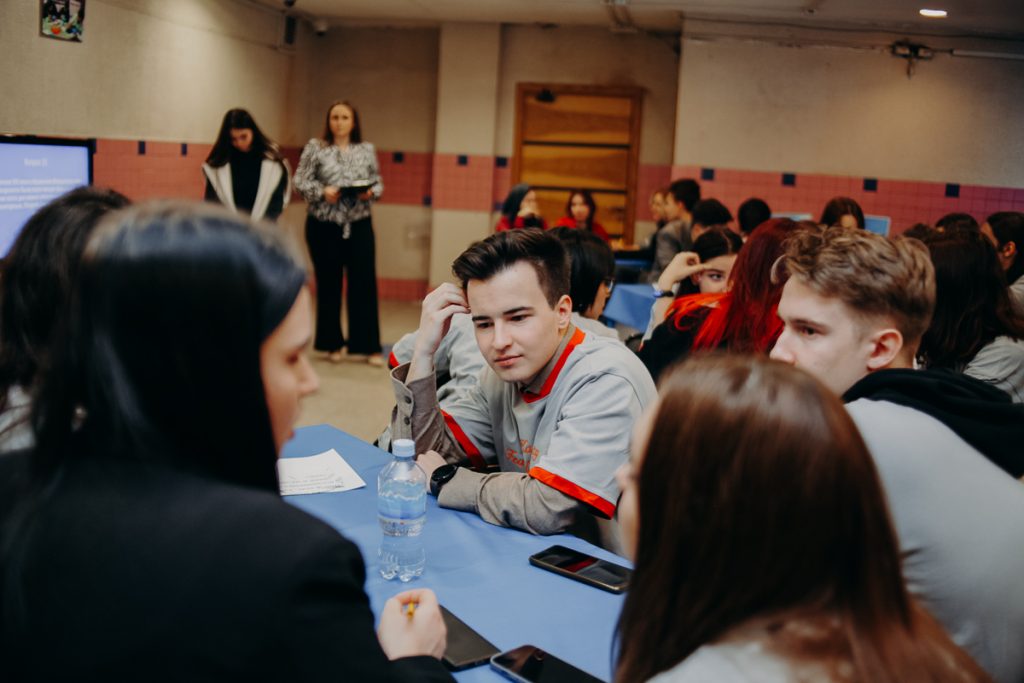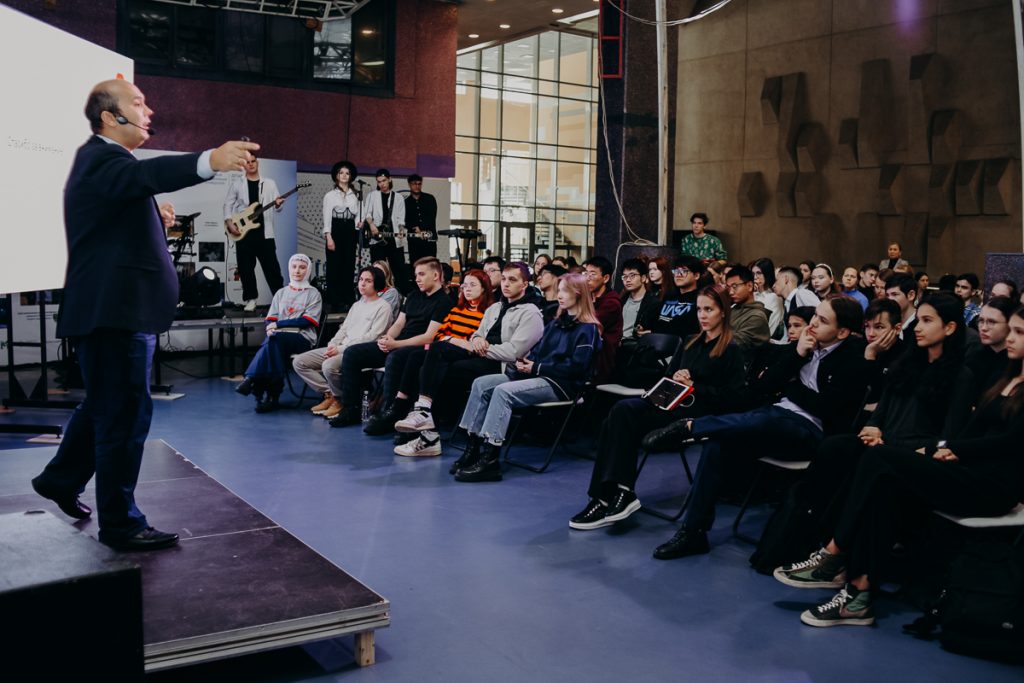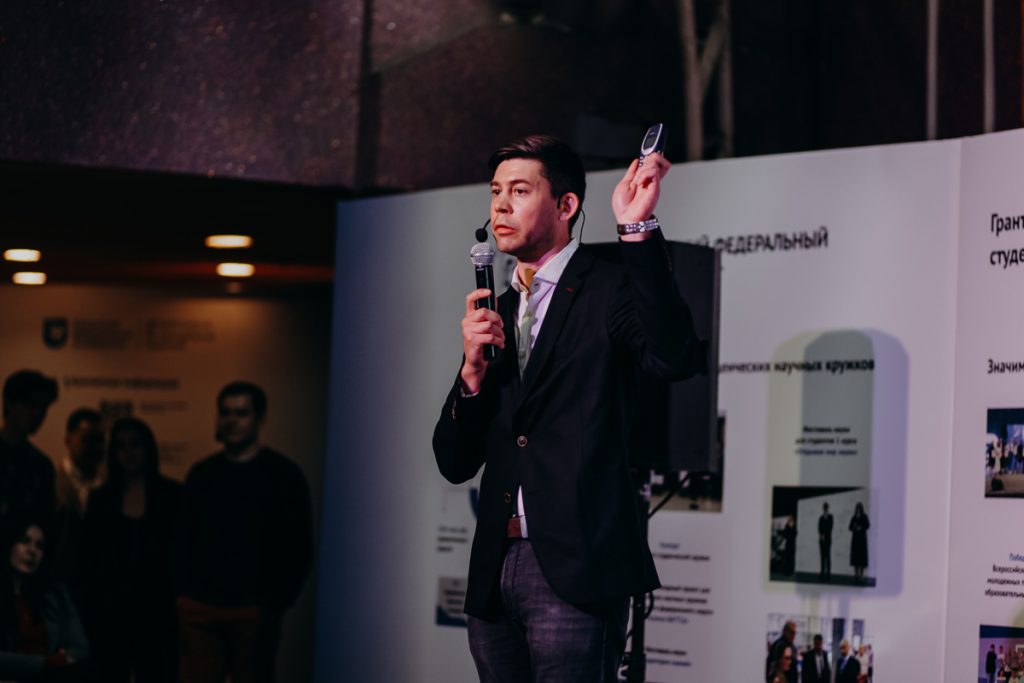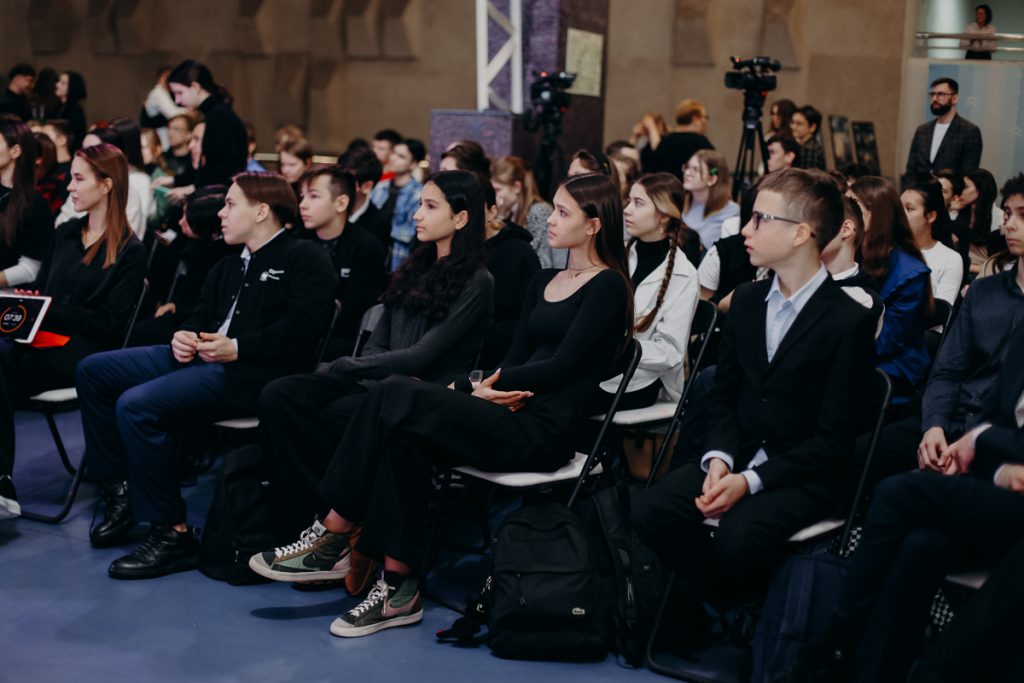Russian Science Day marked by Territory of Knowledge festival
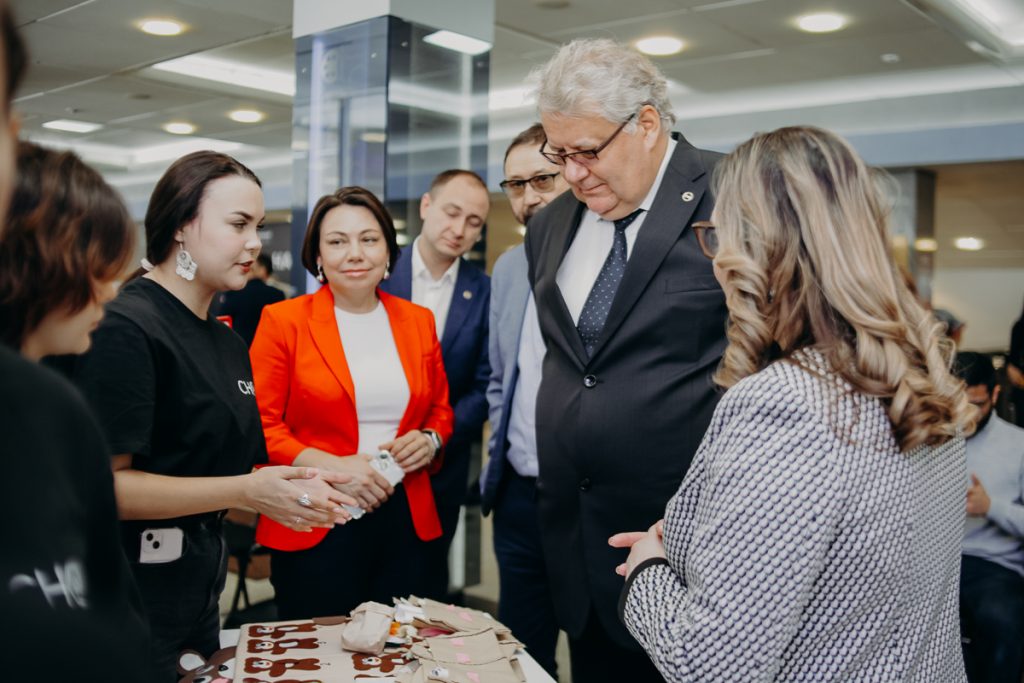
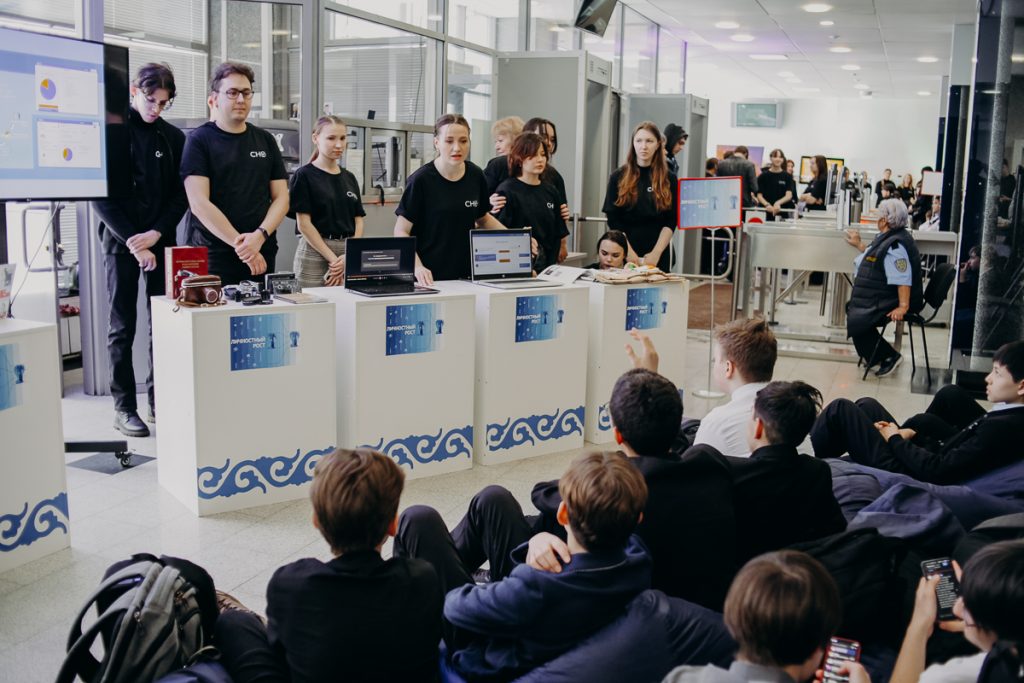
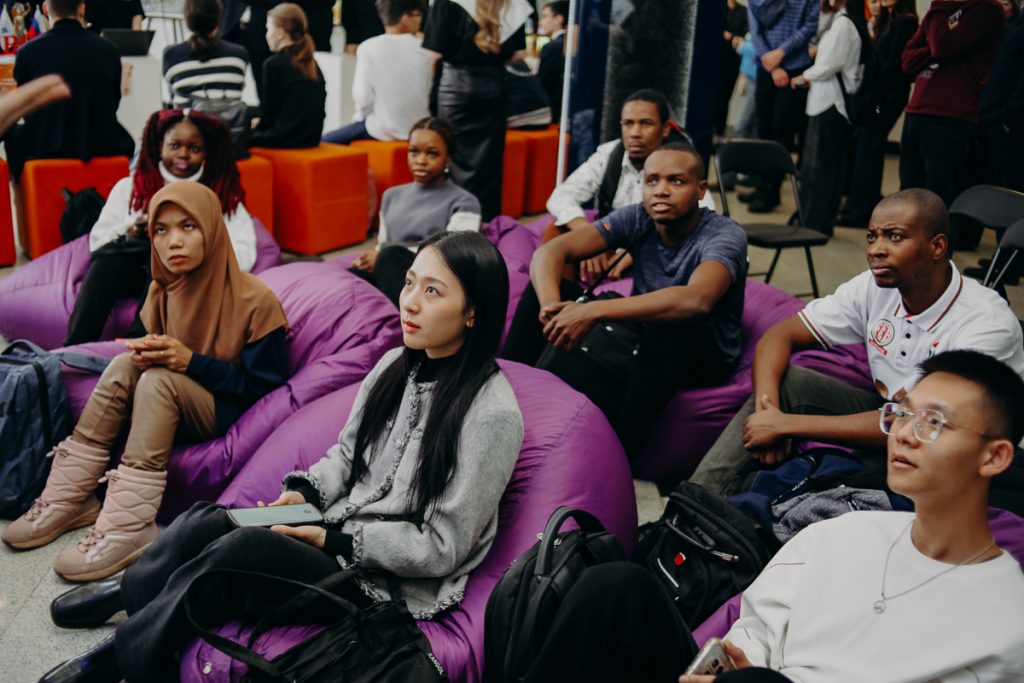
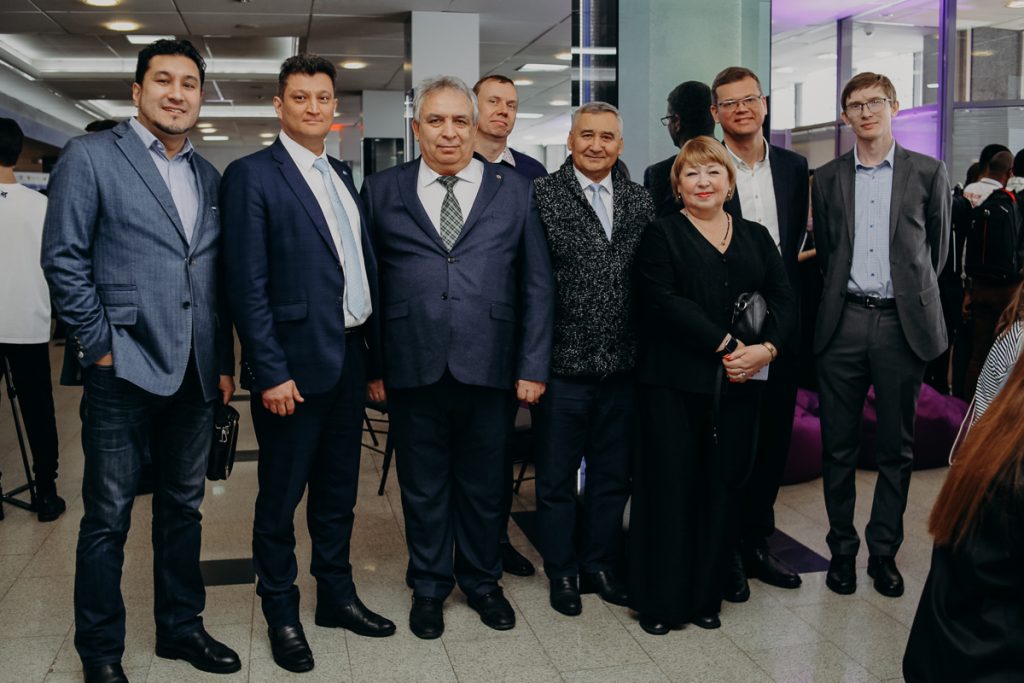
As usual, the UNICS Center became the venue, with its several floors used for various events of the evening.
The program included a celebration ceremony, interactive booths and stands, lectures, science slams, and much more.
First Vice-Rector Dmitry Tayursky emphasized in his address, “We work to generate new scientific knowledge and, most importantly, to generate a new generation of scientists who will build a bright future for our country. The results demonstrated by KFU students and scientists are world-class. And I am very happy that today I see the inquisitive eyes of people who want to do science.”
After that, the Vice-Rector handed out prizes and appreciation letters to students excelling in science and research.
A congratulation was also extended by Chairman of the Association of KFU Student Science Clubs Ruslan Sadretdinov. He presented lapel pins to Dr Tayursky and Vice-Rector for Youth Policy and Moral Education Arif Mezhvedilov.
Among the lectures were ones about circadian rhythms (Associate Professor Angelina Titova), foreign language learning (Associate Professor Albina Mukhamadyarova), and petroleum engineering (Senior Research Associate Irek Mukhamatdinov). Mr Mukhamatdinov, who won the Russian Presidential Award for Science and Innovation a year ago, said, “Keep researching, don’t stop at any point, believe in your cause and your team. I wish you infinite energy and creative inspiration for fruitful work. Dream and create!” He then gave a TV interview from the stage.
Vice-Rector Mezhvedilov joined the congratulations, “The fact that we managed to unite in the university the creative mix of science, mentorship and education is the merit of our educators. I express my gratitude to the entire faculty which preserves and passes on the traditions of our university.” He also gave out awards and commendations to students.
Apart from traditional dance and vocal performances, the students showed their achievements in science.
Pedagogy student Kamilla Akhmedova spoke about her and her colleagues’ project on special animated films for children with autism spectrum disorders, “We relied on the sensory characteristics of children and tried to create cartoons so that they did not overload children, that is, we blurred the background, highlighted the main characters and accompanied the movie with sound. All the cartoons are in the public domain.”
Yury Mayasin showcased a project on cancer prevention awareness, and Tatyana Vavilova spoke about an environmental chat bot in Telegram messenger.
Among other lectures and presentations attention was drawn to nanotechnology, creole languages, brain functioning, decorative cosmetics, multimedia storytelling, and artificial intelligence.
